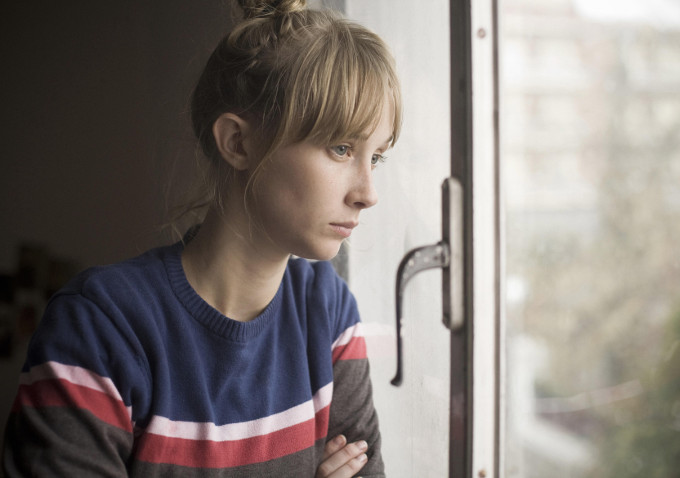
Everyone got hit hard by the economic crisis in the last few years, but Spain got hit harder than most. The fifth largest economy in the European Union, the nation went into recession harder and faster than some of its neighbors, and eventually had to be bailed out in a big way, to the tune of €100 million or so. One of the major knock-on effects of this is that the country has a brutal youth unemployment rate that hovers around the 50%, and has gone as high as 56%, meaning that over half of the nation’s young people are out of work. While it’s not quite as terrible as it seems (when you remove students and the like, it’s closer to 25%), it’s still pretty awful, and has essentially led to a sort of lost generation, kids who see no hope at home, and are leaving for other climes at an alarming rate.
It’s this existence that “Hermanos Juventud” (or “Beautiful Youth“) takes as its jumping-off point. It centers on a young couple in their early 20s, Natalia (Ingrid Garcia-Johnsson) and Carlos (Carlos Rodriguez). Jobless and living in Madrid with their respective parents, they’re so strapped for cash that they resort early on to making amateur porn for €300 each. Then Natalia finds out that she’s pregnant. Her mother, struggling to feed the mouths that are already around as it is, wants her to have an abortion, but Natalia, encouraged by her boyfriend, decides to keep it. But the two don’t just have to overcome their irresponsibility and naiveté as parents, but also a world around them that makes it almost impossible to provide for their child.

Director Jaime Rosales has made a few fairly inaccessible art films before now, but “Beautiful Youth” certainly marks a step towards the mainstream for the filmmaker, or at least the wider-appealing arthouse. Formally, it seems like the director might have gotten a Dardennes box set for Christmas, with the cinéma vérite-style and slice-of-life subject matter very much drawn from the Belgian directors.
It probably doesn’t do “Beautiful Youth” any favors that there’s some full-fat Dardennes at the festival at the same time, tackling similar subject matter, because the rather banal version here certainly pales in comparison. Rosales sort of skirts around the edge of actual drama rather than embracing it, preferring to keep it off screen and letting you pick up what’s happened in between. That sort of approach can sometimes be hugely effective, but there’s simply nothing particularly remarkable about the story that’s being told here, especially for those who’ve lived it, or are living it. Simply put, we’ve seen it before, and better told than here.

Rosales attempts to liven things up with on-screen use of texting and social media is theoretically interesting, but rather than integrating it into the film as a whole, it’s instead used as time transitions in stand-alone sequences. The first time, it’s a welcome change of pace, but by the final one, a silent scroll through a series of pictures that goes on far too long, the conceit has worn out its welcome.
The film is at least well-acted, with both leads impressing. Johnsson, in particular, is luminous, flighty and grumpy in the early stages before gradually taking to motherhood, and growing with it, in a way that Carlos never quite copes with. And it’s hard to dislike the film—it’s decent enough, just thoroughly unexceptional. As it is, we might have to wait a little longer for the definitive cinematic take on Spain’s lost generation. [C]
Browse through all our coverage of the 2014 Cannes Film Festival by clicking here.







It's "HERMOSA Juventud" not "Hermanos Juventud".